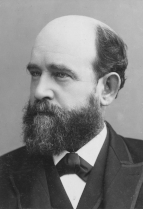CD Howe Institute endorses Toronto City Councillors plan to capture land value capture to finance transit. Jeff Dean
_______
Increase taxes along transit lines: National Post · Jul. 6, 2012 http://www.canada.com/business/Increase+taxes+along+transit+lines/68916…
Toronto's "OneCity" plan, which city councillors will debate on July 11, could be a move in the right direction. OneCity's proponents propose a new transit network, financed by equal federal, provincial and municipal contributions.
The proposal sees the municipal share coming by capturing a share of a larger assessment pie as housing values presumably increase.
OneCity's proponents should modify their revenue plan to better target those who benefit from transit expansion with those who pay for it. Without a change to the plan that better targets the tax increase to areas where transit expands, voters and city councillors from areas where new subways do not venture will balk at the higher taxes, making OneCity one more of Toronto's myriad failed transit plans.
Currently, if the city's total property tax needs are held constant, the households that pay more property taxes are those where their assessed property value rises relative to the municipal-wide change in assessed values.
A study of house prices in London, U.K., found that property values of houses near new transit rose relative to those in the rest of the city. The study examined a recent round of expansion of light rail and subways that linked a previously unconnected area of London. Houses there within two kilometres of a station increased in value by between 3% and 12% more than houses elsewhere in London over the study period.
In areas of Toronto where there will be new transit, the increase in assessed values relative to the rest of the city will likely be attributable to the new transit. Current residents in these neighbourhoods will see their property values increase largely because of the public investment.
A tax that captured this increase in local house values because of new nearby transit options - which is a windfall gain for those residents - could provide a dedicated revenue stream to fund transit expansion.
However, not all houses in a city rise in value in the same way because of transit. The London study found that beyond two kilometres from a station, the average value of a house fell by as much as 3%, relative to the rest of the city, for each kilometre a house was away from the nearest station.
To assume ever-increasing property values throughout a city would be a dangerous game - ask a homebuyer in Florida, Nevada or Arizona. Transitory booms in the real estate markets aside, the city will find no new reassessment-related revenues in areas where new transit does not venture.
OneCity's proponents should consider a hybrid of the current proposal paired with a more traditional tax increment financing (TIF) zone.
Under a TIF, only the increase in assessment values in areas where transit is built are dedicated to transit expansion. This would make OneCity's proposal - to capture part of the reassessed value of homes - apply only in areas that get improved transit access.
A bigger issue is that the city should not count on other governments pitching in. City residents should only pay for transit that benefits city residents. Why should residents outside of Toronto pay for transit that only serves Toronto residents?
To avoid going into debt, the city could use future, higher, property tax revenues to pay the private provider over the lifespan of the transit infrastructure.
City councillors must stop drawing lines on maps and instead get down to the hard business of creating a workable plan to finance transit expansion where those who benefit from new transit pay for it.
Benjamin Dachis is a senior policy analyst at the C.D. Howe Institute, an independent not-for-profit organization.

